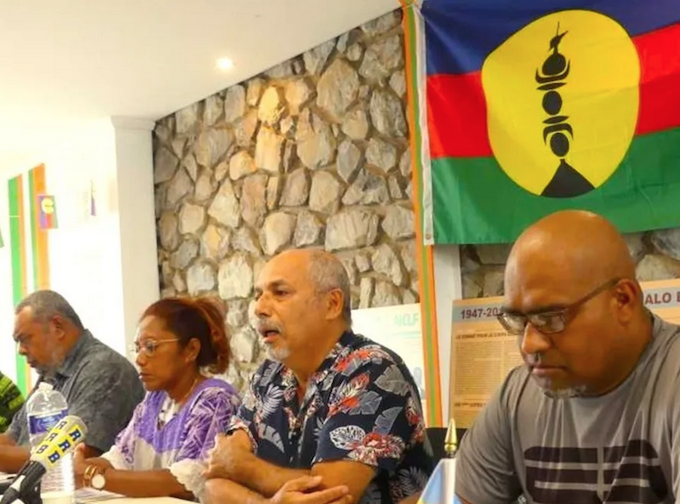
By Patrick Decloitre, RNZ French Pacific correspondent
One of the main components of New Caledonia’s pro-independence FLNKS umbrella, the Union Calédonienne (UC), says it has now suspended all discussions with two pro-French parties until further notice.
These are the Rassemblement and Les Loyalistes.
Public broadcaster NC la 1ère has reported the bone of contention is a series of recent comments made by pro-French politicians from those parties after a UC-organised demonstration in downtown Nouméa turned violent.
- READ MORE: Pro-independence protesters, French police clash in New Caledonia
- Other Kanaky New Caledonia reports
This happened during French Home Affairs and Overseas Minister Gérald Darmanin’s visit to New Caledonia.
During those clashes between protesters and French security forces, at least five gendarmes were hurt, one suffering a head trauma after being hit by an iron bar.
The protests were motivated by UC’s opposition to French government plans to amend the French Constitution and modify the rules of eligibility for voters at New Caledonia’s local elections.
Support for the UC and FLNKS is primarily from indigenous Kanaks who make up 41 percent of the population of 271,000, according to the 2019 census.
Lawsuit to ban activist group
Leaders from both pro-French parties filed a court case and called for the UC-reactivated group (CCAT — Cellule de coordination des actions de terrain — field action coordination cell), which organised the protest, to be officially dissolved.
In a statement, UC expressed “regret” at the violence during those clashes, but also accused those politicians of showing disrespect to the pro-independence camp.
Over the past two years, Darmanin has been repeatedly calling on all of New Caledonia’s political parties to hold talks together in an inclusive and bipartisan way and come up with a visionary agreement that would lay the foundations for a new political future.
The previous autonomy Nouméa Accord, signed in 1998, is now deemed to have reached the end of its 25-year lifespan.
This article is republished under a community partnership agreement with RNZ.










































